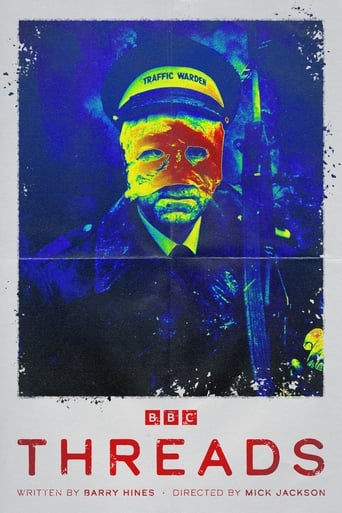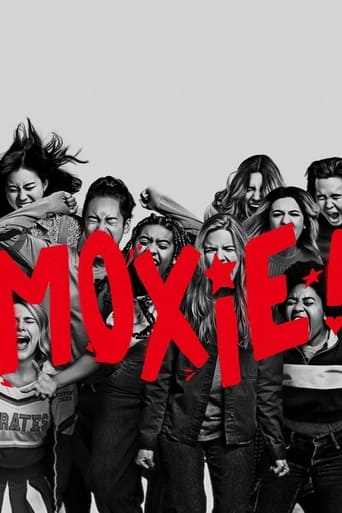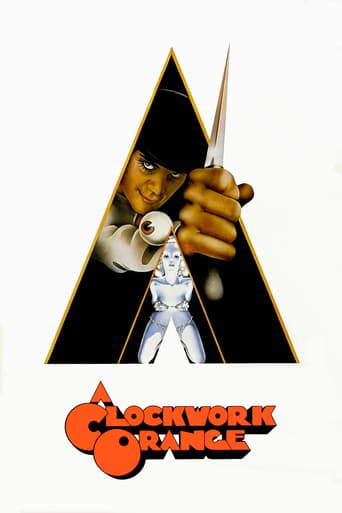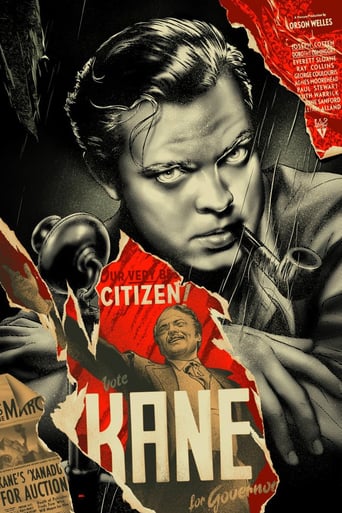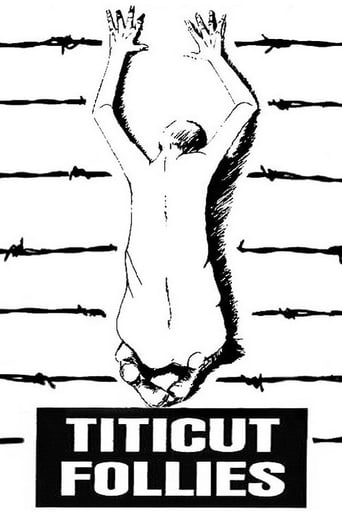


Titicut Follies
A stark and graphic portrayal of the conditions that existed at the State Prison for the Criminally Insane at Bridgewater, Massachusetts, and documents the various ways the inmates are treated by the guards, social workers, and psychiatrists.
-
- Cast:


Similar titles
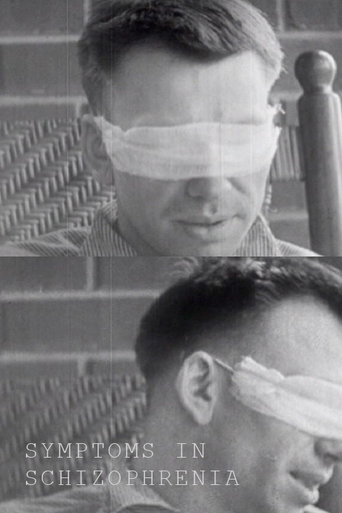

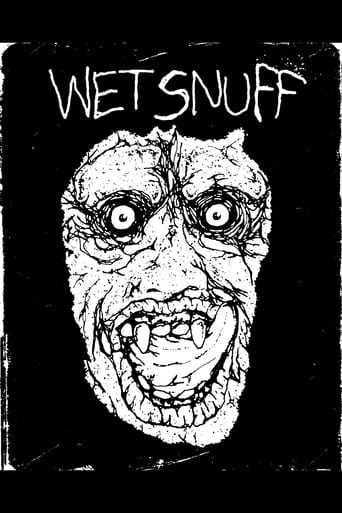
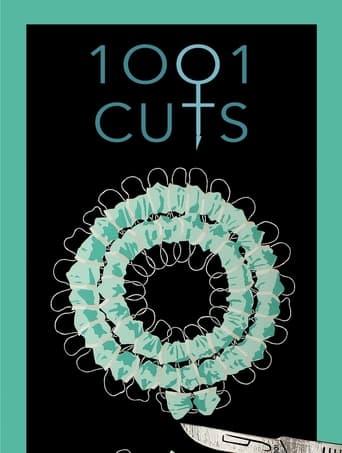

Reviews
Instant Favorite.
Good films always raise compelling questions, whether the format is fiction or documentary fact.
This movie tries so hard to be funny, yet it falls flat every time. Just another example of recycled ideas repackaged with women in an attempt to appeal to a certain audience.
Story: It's very simple but honestly that is fine.
Titicut Follies for me is an exploration of the human condition in general, an empathetic approach to both prisoners and staff in a hospital for the criminally insane (asyla have often been used as metaphors for society and it's power structures, since Poe's tale "The System of Doctor Tarr and Professor Fether"). It's also a reforming film, a quiet condemnation of the treatment of the prisoners in a systematic sense. The prisoners are kept naked seemingly for a lot of the time. It's not really clear why this is, and it's humiliating for them (they are covering up their modesty, and so they are aware of loss of dignity). On the other hand I'm sure that however inappropriate, it's done for (doubtlessly foolhardy) reasons of practicality (none of the guards want to look at naked prisoners all day I'm sure).There's bullying of a patient called Jim, an old man, who is asked questions repetitively, and then when he answers the guards pretend not to hear him and ask him to repeat himself. It's the kind of bored casual bullying that even bright well-adjusted emotionally intelligent kids slip into at school, "oh there's the weird up kid, let's push their buttons and see which whistles blow and which bells ring". It's not right, but it's a systematic failure, and typical of human behaviour, rather than the results of calculated actions by a group of twisted sadists.The chief guard appears to have a degree of megalomania, he wants all the applause at the follies and likes to be the centre of attention, and is apparently kind of put off when a nurse is showing a letter of thanks from a patient because he's no longer the centre of attention. I think he would of made a good TV host, but he wound up in a prison, so probably has issues with that.I was worried about voyeurism at one point. A man is force fed because he has refused to eat for three days and is skeletal, he is dead before the end of filming, and there is a match cut of him on the bed in the hospital after feeding to a picture of his corpse. That seems a little irresponsible to me. I don't see any critical context, if a patient has become insensible, surely it's irresponsible to let them die? The force feeding is not pleasant for sure, but it's not insufferable in my opinion. If the man had made clear his wish to die, then that's another matter entirely.One really effective criticism for me is that there is man who clearly doesn't belong in Titicut. He complains a lot to the doctors that the place is causing a problem for him that wasn't already there, and that he just needs to be sent back to the normal prison. He's an articulate individual and I was convinced by him. The panel of doctors he was talking to were pretty much ignoring him. He's telling them that the drugs he's on are reacting badly with him. At the end of the hearing the doctor is recommending his dosage of tranquilisers be upped (that really is insane). The man is capable of a lot of restraint, he's being ignored, and when the doctors interrupt him mid-flow and beckon for him to be taken out of the room he just goes. Me, you, and almost anyone else would have gone ballistic in the same situation. It seems he's been sent there because he complained that the coffee at the prison was being drugged, which apparently is a paranoid delusion, well they have done that at prisons a lot in the past, and I think they still do it today. Even if he's wrong, what the hell is he being sent to a hospital for the criminally insane for just for that? There's a suggestion which isn't fully fleshed out that certain individuals are there for being black and uppity, and some for being communist. It's hard to comment on that further when the film doesn't devote to much time to it, but that's the impression I got.The entertainment that is referred to in the title isn't a point of concern for me. There are a group of songs that the inmates perform. I didn't think there was any manipulation here. Their faces are very unguarded and they are very nervous during the performance, but you can see as soon as they have finished their song the relief and glee, it's probably the only time they'll be happy all year.I'm fond of DW Griffiths' aspiration that film could change the world, and guess what, that's what Wiseman's film did, there were directly-provoked reforms the year after the film was made. To what extent I don't know, but he achieved something there. It's undoubtedly one of the great documentaries.One last word is that people are apparently ignoring the main meaning of the word follies, which would be a plural of folly: "the state or quality of being foolish; lack of understanding or sense." That is what is going on at the institution, government by folly.This film, and pretty much all of Wiseman's films are available directly from Zipporah films on DVD, and are not stocked by Amazon.
I saw this film while in college back in the 1970's and was amazed and disturbed. I think it was banned or hard to find at that time. My professor was able to get a copy. It is difficult to describe this documentary. It was sad, harshly realistic and horrific. This was how inmates/patients were treated, but again, it was the 1960's. They were likely using the same treatment methods since the 1920's. One interesting note, I met one of the patients who was in the film. He had been released and apparently was doing well enough. I'll not identify him because he was well known in his community. He remembered the filming, but did not know that he was famous for it. He has since passed away, but many people remember him fondly. If there can be a bright side to this film, I guess that's it.
OK, the quality is pretty bad but it is watchable. I have been hoping to catch a bit-torrent of this film for the last two years. As of Sept 15 2006 is is up on Google Videos, just search Titicut. I can see a direct influence this film had on somebody that was involved with One Flew Over the Cuckoo's Nest. Highly recommended. Like a different poster, the people that run this site feel a need for me to post 10 lines of text. I guess they like loquacious people at IMDb. Am I up to ten yet? If the people that make these absurd policies need work they would be well qualified for employment as guards and head-doctors at a mental hospital. Watch the movie Skippy and then look in a mirror. And cry, IMDb Skippy, cry.
Not exactly the kind of movie for which star-ranking seems appropriate.As a professor at Bridgewater State College, I learned about this movie in a peculiar way: when considering a job at the college in 1997, a web search of the town name mainly yielded comments about this movie.Once I started teaching here, I learned that students did not like for us to say "Bridgewater State" because their friends back home (mostly other towns in the general region south of Boston) would always tease them about being inmates/patients at Bridgewater State Hospital. So I always say "BSC" or the full name of the college.I should say that I watched most but not all of the film. It was disturbing but not horrific. I think that the lack of dignity afforded the inmates/patients is what bothered me the most. I blame this as much on the director as on the institution itself.I like to think that 40 years later, the movie had the desired effect, though, of bringing attention to a chronically unattended problem: the treatment of mentally ill people in general and the criminally insane in particular.One last thing, as I write this while sitting in my home about three miles from the site -- in nine years of living here and being very active in the community, I have yet to meet an employee of the prison complex (which includes the State Hospital and regular prisons). I rarely hear about the movie, nor do I hear discussions of what the place might be like today.


